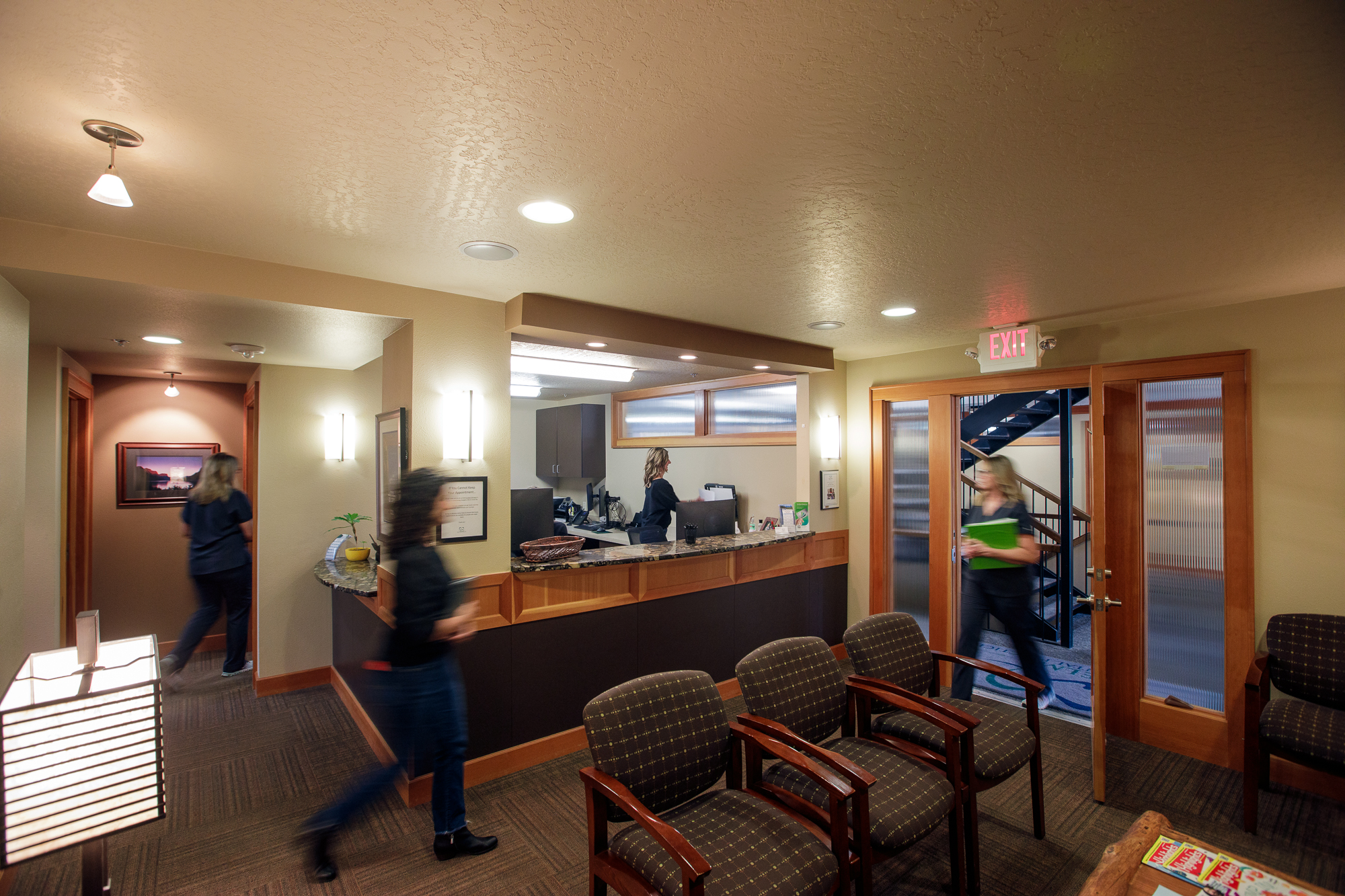
Tooth & Gum Infections
When the inside of your mouth gets hurt or irritated, bacteria may enter and cause an infection. Sometimes you will see a painful swelling filled with pus (a thick, yellowish fluid). If the pus can’t drain out, the area will get more swollen and painful. This is known as an abscess. The abscess forms a barrier around the infection. This is one way that your body tries to keep a bacterial infection from spreading.

Abscesses can form very quickly. Sometimes they form only one or two days after the infection starts. There are two types of abscesses:
A gum abscess (also called a periodontal abscess) usually is caused by an infection in the space between the tooth and gum. The infection may occur after food gets trapped between the gum and tooth. In people with severe periodontal disease, bacteria can build up under the gum and in the bone.
A tooth-related abscess (also called a periapical abscess) occurs inside the tooth. This happens when the tooth’s nerve is dead or dying. This type of abscess shows up at the tip of the tooth’s root. Then it spreads to the surrounding bone.
Most abscesses are painful, so people usually seek treatment right away. Sometimes the infection causes little or no pain. If an abscess is not treated, the infection can last for months or even years. It will not go away on its own, so it’s important not to ignore the symptoms.
If the infection is not treated, it can damage the surrounding bone and teeth. A hollow tunnel sometimes forms through the bone and skin to allow pus to drain. This tunnel is called a fistula or “sinus tract.” You might see or feel this opening inside your mouth. It looks like a pimple. If you have pus draining through a fistula, you might notice a strange taste in your mouth.
Sometimes, an abscess that isn’t treated can form a fluid-filled bubble (cyst) in the jaw bone. If the tooth is severely broken down and can’t be saved, the cyst may come out when the tooth is extracted. If the tooth can be saved, you will need a root canal to remove the infected nerve. If this treatment does not heal the cyst, you may need surgery to remove it.
In rare cases, the infection that causes an abscess may spread and lead to serious health problems.
what you can do
Abscesses are always serious because the infection may spread to other parts of the body. Call your dentist for an appointment.
If you can see or feel a pimple-like swelling on your gum, rinse your mouth several times a day with a mild salt-water solution. Use 1/2 teaspoon of salt in 8 ounces of water. This may help draw the pus out and relieve pressure. Even if the rinse seems to help, you still need to see your dentist as soon as possible.
What Your Dentist Will Do
Most gum abscesses will heal quickly after three things happen:
- The area is cleaned thoroughly.
- The trapped pus is allowed to escape.
- The infection is treated.
If a fistula has formed, your dentist will trace it back to the source of the infection. Your dentist will insert a flexible, thin piece of material into the fistula. This will appear on an X-ray and show the dentist where the fistula leads. Once your dentist cleans out the infection, the fistula usually will close on its own.
If the infection started inside a tooth, your dentist will make a small hole in the tooth. This allows the abscess to drain. The tooth will need root canal treatment, followed by a filling or a crown.
If an abscess is very large or the tooth is badly damaged, you may need to have the tooth removed. A large abscess often will need to be drained. The dentist makes a hole in the gum through the bone that provides an exit path for any fluid or pus. This will reduce the risk of further spread of the infection.
People with severe periodontal disease may have abscesses. Draining them helps the immediate problem. However, the periodontal disease needs to be treated to prevent another infection.
Your dentist may give you a prescription for antibiotics and painkillers. These drugs will help the abscess heal and keep the infection from spreading.